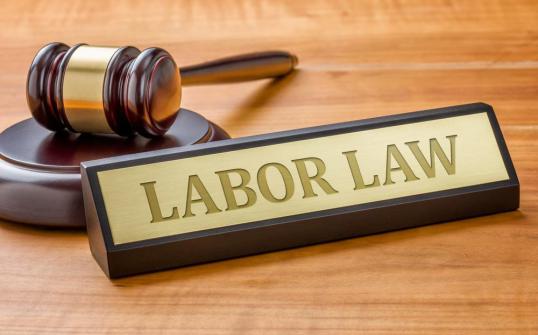Labour law (US spelling: labor law, sometimes incorrectly conflated with employment law) is the area of law most commonly relating to the relationship between trade unions, employers and the government.
While the development of the field in different jurisdictions has resulted in different specific meanings of what is meant by labour law, it is generally used in reference to employment contexts that involve a trade union, while the term employment law is usually used for workplaces where the legal relationship is directly between the employer and the employee. While in some jurisdictions the term may be used to refer to such law that may not involve trade unions, the genesis of the term is historically inseparable and begins with the labour union movements.
At the statutory level, Labour law is concerned with the establishment of a labour-relations framework that provides for orderly and peaceful industrial relations between employers and organized workers, and usually includes rules on forming a union, conditions under which the union becomes bargaining agent, strikes and lock-outs, process for negotiations, and other structural elements that then permit the employer and the union to bargain a collective agreement and fill-in the rest specific to rules and conditions relating to the workplace. It arises primarily from and in the context of British common law and related jurisdictions, to which it is also historically linked as wage work begins in the Industrial Revolution, and in this way, labour law and related concepts mark a departure from the tradition of contract law that existed previously for master-servant relations to that point. Labour law is not the law that regulates minimum standards of employment in most British common law jurisdictions, but is the law that pertains to the rules meant to provide a framework for labour relations and collective bargaining. Employment law, or employment standards law, refers to the regulations in statute law that establish minimum conditions relating to the employment of persons, such as minimum working age, minimum hourly wage, and so on.



